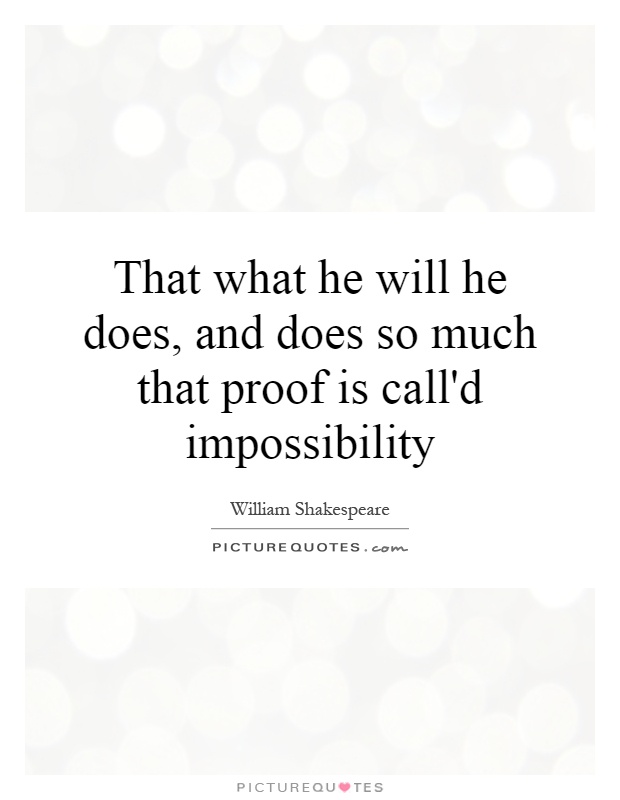That what he will he does, and does so much that proof is call'd impossibility

That what he will he does, and does so much that proof is call'd impossibility
In the world of William Shakespeare, the concept of fate and free will is a recurring theme that is explored in many of his plays. One of the most famous lines that delves into this idea is from the play "Troilus and Cressida," where Shakespeare writes, "That what he will he does, and does so much that proof is call'd impossibility."This line speaks to the idea that a person's will is so strong that it can overcome seemingly insurmountable obstacles. It suggests that when someone is determined to achieve something, they will stop at nothing to make it happen, even if it seems impossible to others. This idea of determination and perseverance in the face of adversity is a common theme in Shakespeare's works, as many of his characters are driven by their desires and ambitions, no matter the cost.












 Friendship Quotes
Friendship Quotes Love Quotes
Love Quotes Life Quotes
Life Quotes Funny Quotes
Funny Quotes Motivational Quotes
Motivational Quotes Inspirational Quotes
Inspirational Quotes